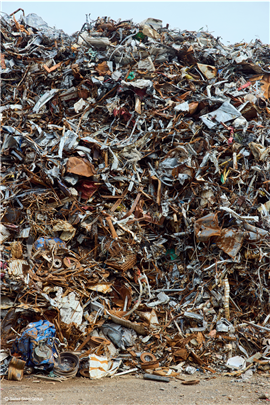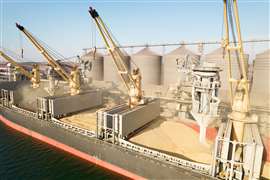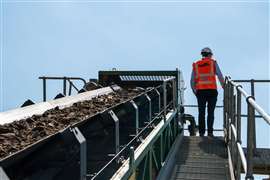How Swiss Steel is stepping up its partnerships with scrap metal dealers
03 April 2024
Swiss Steel, one of the largest producers of electrical steel in Europe, has stepped up its operations by partnering with scrap metal dealers to produce green steel.
 (PHOTO: Swiss Steel Group)
(PHOTO: Swiss Steel Group)
Scrap is the primary raw material for Swiss Steel Group, which processes more than 2.2 million tonnes of scrap every year.
According to the company, producing steel from pre-sorted scrap requires less energy and generates less CO2 than producing steel from iron ore and alloy metals.
Swiss Steel said: “Cooperation with scrap dealers is crucial. Previously, they only negotiated the price per ton, but now scrap dealers are system service providers who are compensated for quality and punctuality.”
It said: “The quality of the scrap directly affects the quality and environmental impact of the resulting steel. This is a crucial requirement for producing ‘green steel’.
As such, the company is now utilising a five-stage process maturity model to improve scrap quality.
“To produce high-quality steel, it is necessary to use new scrap material from metal processing with precisely known alloying additions. This enables precise control of the composition of the new steel, resulting in the production of high-grade steel for new quality products,” Swiss Steel said.
The company added that while scrap is no longer considered waste, but a valuable and costly raw material, “transporting scrap across Europe is both environmentally damaging and inefficient”.
It said: “Steelworks with a strong local presence, like those of the Swiss Steel Group, play a crucial role in establishing regional circular economies by minimizing transportation distances.
“In Germany, France, and Switzerland, the Swiss Steel Group’s steelworks source most of their scrap from within a 90 to 100-kilometer radius.”
According to the company, in recent years “scrap dealers have become more than just middlemen; they are now important, fully integrated system partners in the steel industry”, and are making a huge contribution in the field of data.
“For instance, the Swiss Steel Group plant in Switzerland is collaborating with scrap suppliers and multiple universities on a project to create a digital twin of incoming scrap.
“This project is highly rated in terms of its significance and is being funded by the Swiss government. This project utilizes big data to enable steelworks to predict the type of scrap that will be delivered, resulting in more efficient and effective delivery, production, and steel quality.”
The company claims the digital twin of its scrap is “groundbreaking and has potential applications beyond the steel industry”, as the system can be used for other materials.
STAY CONNECTED



Receive the information you need when you need it through our world-leading magazines, newsletters and daily briefings.
CONNECT WITH THE TEAM










